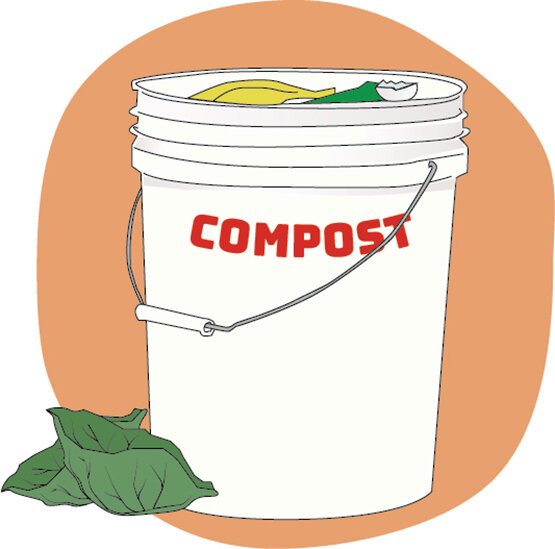Composting Protects the Sea, Reduces Greenhouse Gas Emissions
November 27, 2023
This Thanksgiving, Americans will throw away roughly 305 million pounds of food — the equivalent of about 1,525 blue whales. But imagine if things were different. What if this food waste could become healthy soil, protecting the sea by reducing greenhouse gas emissions and our reliance on synthetic fertilizers?
The good news is that we’re already getting started. In 2023, our grantees have helped divert 3,280,900 pounds of food waste from landfills.
Our support for composting initiatives started small and grows steadily as we witness success. We’re developing school compost programs, increasing access in historically marginalized communities, and supporting BIPOC-led businesses and initiatives. We’re also supporting new processing sites, increasing demand through an advertising campaign, and supporting a network of community compost leaders.
Just last month, Groundwork Rhode Island was named a sub-awardee of the city of Providence’s Environmental Protection Agency grant from the federal infrastructure bill. The funding will support its West End Compost Hub, a remediated brownfield site.
Composting at home requires minimal effort and expertise and can be as simple as placing your food scraps in a bin on the side of the road for collection. As families gather for this holiday season, bring the conversation about composting to the table.
To start this conversation, here are some composting solutions to kick-start your journey #fortheocean. On our website, you can find more than 80 compost collection services in the Northeast. Or, explore national resources from literless.com.
If you want to witness the magic of food waste transforming into organic compost, try it in your backyard. Learn how to compost at home from the EPA, and dive deeper into the community composting movement from the Institute for Local Self-Reliance.
By simply composting food scrap instead of throwing them in the trash, you remove carbon dioxide from the atmosphere, mitigating climate change. Watch nature’s ability to restore itself, like magic.
11th Hour Racing is a Newport, R.I.-based nonprofit that mobilizes sports, maritime and coastal communities with an innovative approach to inspire solutions for the ocean.
Categories
Join the Discussion
View CommentsRecent Comments
Leave a Reply
Your support keeps our reporters on the environmental beat.
Reader support is at the core of our nonprofit news model. Together, we can keep the environment in the headlines.
We use cookies to improve your experience and deliver personalized content. View Cookie Settings




Compost is critical for soil health, climate mitigation, and healthy food. It will be an economic engine in our communities as well. RI Compost Conference and Trade Show will be March 14 at Rhode Island College